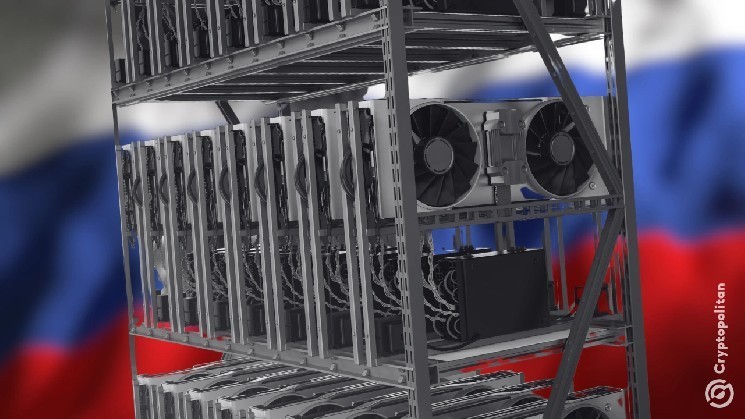President Putin of Russia has blamed growing energy deficits caused by the booming minting of digital currencies for a creeping ban on crypto mining across his country.
Putin’s comments on the matter follow a recent increase in electricity prices which, as analysts predict, is likely to affect the business of companies mining Bitcoin in the Russian Federation.
Governors asked for it, Putin says of Russian mining ban
Electricity shortages resulting from the rapid growth of crypto mining are the main reason for Moscow’s decision to ban the activity in certain regions, Russian President Vladimir Putin explained during an event devoted to discussing development initiatives.
Local officials dealing with the issue have been urging the federal government to do something as they are facing insufficient energy supplies needed for various infrastructure and industry projects, Russia’s head of state revealed, quoted by the Kremlin.
Speaking about the need to maintain a balanced approach to exploiting Russia’s resources during the plenary session of the “Strong Ideas for a New Time” forum, organized by the Agency for Strategic Initiatives, Putin gave crypto mining as an example:
“We were recently happy we had a surplus of electricity in some regions. But they began actively mining there, and governors started complaining to me they did not have enough electricity to develop their regions. We were forced to make certain decisions in the mining sphere.”
The concerns of local authorities highlighted by the Russian leader have so far led to seasonal or permanent restrictions on cryptocurrency mining in many corners of the vast country.
A full ban, until 2031, has been imposed in almost a dozen territories, from Siberia to the North Caucasus and occupied Ukraine, although some regions were recently spared with federal officials warning that tax and energy revenues may take a hit.
Higher electricity rates also hurt Russian miners
Meanwhile, electricity costs in Russia have gone up since July 1. According to a report by the business news portal RBC, tariffs for power transmission via Russia’s national grid will increase by 11.5% by the end of 2025 and the rates charged by local distributors will jump by 11.6%.
Electricity is arguably the biggest expense for mining enterprises as their hardware consumes significant amounts of electric energy. The latest generation device can burn about 2.5 MW a month, and industrial-size minting facilities have thousands of these mining machines constantly running.
While most mining firms take into account the usual annual indexation of energy prices in advance, this year’s increase is outstripping inflation and threatens to reduce the competitiveness of Russia’s mining sector as a whole, according to Oleg Ogienko, expert on blockchain, energy, and digital finance.
The analyst remarked that both customers of Russian mining companies and investors, especially foreign investors, are already choosing other, more favorable jurisdictions, such as the United States, where, in his words, a real mining boom is currently taking place.
Russia legalized cryptocurrency mining with a law signed by Vladimir Putin in August 2024. Under the legislation, legal entities and private individuals are allowed to mint digital coins as long as they register with the Federal Tax Service and pay their due taxes. Only about 30% have done so.
Low electricity rates and, in some cases, a surplus of generating capacities, turned places like the Siberian Oblast of Irkutsk into mining hotspots over the past few years. Then, the resulting power deficits were met with government prohibitions.
Industry watchers claim, however, that the restrictive measures are mostly hurting legal mining businesses. To address the issue, Russian authorities are considering alternative options such as moving crypto farms to energy-rich regions, in the North, for example, while cracking down on illegal mining activities throughout the country, and more specifically in energy-deficient regions.

